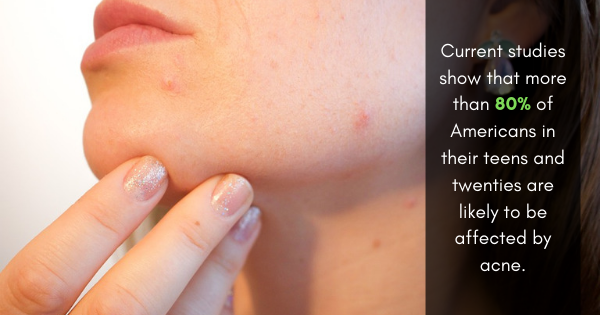
A Four Seasons Guide to Living With Eczema
The symptoms of eczema can be physically uncomfortable, embarrassing, and stubborn — but with proper treatment, it is possible to manage the condition.
If you suffer from eczema, you know that the severity of your symptoms can vary widely from season to season. Here’s what to expect as the seasons change, and how you can keep your condition in check year-round.
Winter
For many eczema sufferers, symptoms worsen in the winter time, and it makes sense: winter is the most extreme season for your skin. Eczema produces dry, itchy, and flaky skin as well as redness and inflammation. These normal symptoms are made even worse by the low humidity during the winter months: the outdoors is cold and dry, while indoor heating leaves the air similarly dry. Frequently moving between the indoors and outdoors exacerbates eczema, and can leave the skin dry, cracked, and even bleeding.
Here are our tips for keeping eczema under control during the winter months:
1) Wear Gloves
Anytime you are outdoors during the winter, you should be wearing gloves to protect your hands. Avoid scratchy material like wool and stick to soft, protective fabrics. Gloves will protect your skin from the cold, from moisture, and from the wind and sun, which can all exacerbate your symptoms.
2) Invest in a Humidifier
Using a humidifier indoors will help combat dry heat, keeping proper levels of moisture in the air.
3) Take Short Showers
It can be tempting to take long, hot showers during the winter months, but water is naturally drying to the skin and can exacerbate the worst symptoms of eczema. Baths should be completely avoided, and showers should be short, using warm but not hot water.
4) Moisturize
Applying moisturizer once or twice a day is a simple, easy solution to combat eczema. We recommend doing so particularly after washing your hands, showering, or doing the dishes, all of which can dry your skin out.
5) Apply Sunscreen
Exposure to the sun can be damaging to your skin, no matter what season it is. It might seem strange to put sunscreen on when you hit the ski slopes, but doing so is a highly effective means of avoiding sun damage year-round. For the best protection, use a moisturizing sunscreen.
Transition Seasons
The spring and fall are difficult seasons for eczema sufferers. While the summer usually means lots of fresh air and wearing light, airy clothing, colder weather in the fall means people start wearing heavier, more irritating clothing and spending more time inside, exposed to dry, artificial heat. Fall for eczema sufferers is marked by red and itchy outbreaks, while the beginning of spring brings both seasonal allergies and wet, humid heat that can cause flare-ups in high-risk areas behind the knees and inside the elbows.
Summer
While not as bad as the winter, summer can also be a difficult season for eczema. The weather is hot, and depending on where you live it can also be dry. Fortunately, there are a number of solutions that will help you get through the summer months.
1) Spend Time Outside
Being active and getting outside is good for your overall health, and can help assuage the symptoms of your eczema. However, be careful not to spend too much time in the sun, and take proper precautions when you do. There is nothing worse than dealing with a bad sunburn on top of your eczema!
2) Stay Hydrated
Drinking plenty of water is one of the most important things to do during the hot summer months. You can never be too hydrated, and drinking water keeps your skin moisturised and your body temperature down, preventing sweat rashes.
3) Wear Loose, Cooling Clothing
Avoid wearing anything constricting. While eczema often makes people want to cover their skin, this can actually make your eczema worse. Wear loose, cotton clothing that allows you to get some sun and lets your skin breath.
4) Relax
Like many physical ailments, stress can make eczema much worse. When you are under stress, your body releases a hormone known as cortisol, which is also responsible for inflammation. Remaining calm and taking active steps to treat and prevent your eczema will help you avoid the worst symptoms.
For more advice on managing your eczema all year round, contact a licensed dermatology professional.









No Comments
Sorry, the comment form is closed at this time.